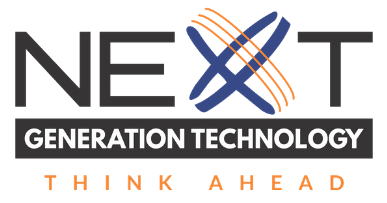
Technology has played a vital role in every organization’s business. With changing requirements and newer technologies emerging, the industry is dramatically changing. Presently, there’s a dearth in resources and infrastructure. The existing infrastructure catered to the lower needs, whereas the current needs utilize a lot more aspects to be covered: agile methodologies, lower costs, scalable databases. This calls a need for Cloud computing. By leveraging technology, the cloud has enabled organizations to explore numerous applications. As resources under cloud computing are shared, this maximizes the usage, which enables a business to process the data on demand. This element of cloud technology is presently on the rise.
Process automation, data storage, application launching, are some adaptations of cloud computing. This evolution started not long ago, with transforming the way business is run, involving big brands like Google, Amazon, and Microsoft to obtain tremendous growth.
I found that Cloud computing provides a wide range of benefits. With 3 major types of services, cloud computing leverages technology to get shared resources while delivering on-demand services. On-demand saves time and money for businesses. Let me share with you the “three types of cloud services” all of which have that WOW factor!
Technology has played a vital role in every organization’s business. With changing requirements and newer technologies emerging, the industry is dramatically changing. Presently, there’s a dearth in resources and infrastructure. The existing infrastructure catered to the lower needs, whereas the current needs utilize a lot more aspects to be covered: agile methodologies, lower costs, scalable databases. This calls a need for Cloud computing. By leveraging technology, the cloud has enabled organizations to explore numerous applications. As resources under cloud computing are shared, this maximizes the usage, which enables a business to process the data on demand. This element of cloud technology is presently on the rise.
Process automation, data storage, application launching, are some adaptations of cloud computing. This evolution started not long ago, with transforming the way business is run, involving big brands like Google, Amazon, and Microsoft to obtain tremendous growth.
I found that Cloud computing provides a wide range of benefits. With 3 major types of services, cloud computing leverages technology to get shared resources while delivering on-demand services. On-demand saves time and money for businesses. Let me share with you the “three types of cloud services” all of which have that WOW factor!
SaaS (Software as a Service)
SaaS Software is hosted centrally, but delivered over the internet via a browser (client), and priced on a subscription basis. These organizations become exclusive for you when the subscription is active – eliminating the need to have a dedicated exclusive server. Frequent, consistent and the latest software updates are automated for care-free maintenance costs. This results in low-maintenance, low cost, and mainly minimizing development costs.
Pretty cool huh! Wait. I’ not done.
PaaS (Platform as a Service)
Centralized platforms are on the rise these days, with most of the infrastructure built on the cloud. Various companies are leveraging technology using Platforms which include centralized operating systems, server software, and program execution environment, for application development. The internet plays a pivotal role in the easy and quick delivery of these platforms, eventually enabling businesses to build application software at lower development costs.
IaaS (Infrastructure as a Service)
IaaS has shared resources which include storage, servers, and networks which contribute to delivering fast and economical services on a regular payment basis. If you want to build an application for software developers in a swift and easy manner, IaaS is the way to go. IaaS enables speed and software developers won’t be spending their time on a dedicated server that is not shared. (As you can guess, that increases the overall cost for development and deployment efforts.)
Companies that use an IaaS model of cloud computing, generally share centrally managed resources to achieve business goals in a cheap and faster way. Some of the benefits of using the IaaS model are lower cost, flexible capacity, increased reliability, optimal server management costs, and increased security along with improved mobility. That makes this highly appealing for all concerned.
Opting out of the traditional business model to go through the painstaking task of managing the high costs, low scalability, low security, and dedicated resources becomes a viable solution. Switch on to Cloud computing solutions that offer better solutions to address all the business problems. This is a more viable option and it’s why many organizations are adopting this solution.
With more and more organizations joining the bandwagon of cloud computing, to address the provision of fast and reliable server capacity at optimal cost, companies like Google, Amazon, and Microsoft have geared up their fleet of services. To serve a website to millions of users, an organization can opt for AWS (Amazon Web Services) for an uninterrupted disruption. Furthermore, giant web technology platforms like Facebook and Google allow the business to reach billions of users depending on the specific services at a very low cost compared to another medium. These cloud platforms are awesome way to increase efficiency by automating the internal processes by periodically checking the data and access to any browser.
Process automation, data storage, application launching, are some adaptations of cloud computing. This evolution started not long ago, with transforming the way business is run, involving big brands like Google, Amazon, and Microsoft to obtain tremendous growth.
I found that Cloud computing provides a wide range of benefits. With 3 major types of services, cloud computing leverages technology to get shared resources while delivering on-demand services. On-demand saves time and money for businesses. Let me share with you the “three types of cloud services” all of which have that WOW factor!

0 Comments